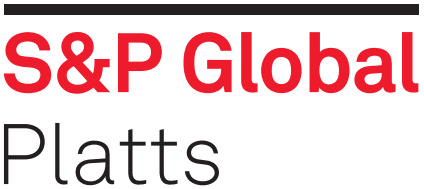
The UK parliament’s rejection Tuesday of Prime Minister Theresa May’s proposal for a deal to take the UK out of the EU brought the country closer to the prospect of a “No-deal Brexit” — widely feared by the UK metals industry and its partners and suppliers in the EU and elsewhere.
Industry and trade organizations, including from the steel sectors, were vociferous in their condemnation of a no-deal scenario which would they said boost uncertainties, delay investment decisions, increase trade bureaucracies and possibly costs.
“No-deal would be disastrous for UK manufacturing and its 2.7 million jobs,” said Stephen Phipson, CEO of EEF, the UK manufacturers’ organization. “The government and parliament must act collectively, swiftly and decisively in the best interest of the people and the economy. The time for theater is over.”
German mechanical engineering federation VDMA said the outcome of Tuesday’s vote was “irresponsible.” According to VDMA President Carl Martin Welcker, “the [House of] Commons has missed the chance to avoid a hard Brexit and lay the foundations with a close relationship with the EU.”
The VDMA had urged companies to step up preparations for a hard Brexit and assess supply chains with Britain to avoid delays in import and export. The association said German industry had benefited so far from business with the currency-related strength of Britain’s export industry, while orders had been brought forward and stocks increased.
The EU imported 2.5 million mt of finished steel products from the UK in 2017 and 2.2 million mt in January-November 2018, equivalent to one third of UK output. Steel trade from the EU into the UK was even greater: amounting to 3.7 million mt of finished products in 2017 and 3.6 million mt in January-November 2018 according to Eurofer, the European Steel Association.
UK default to WTO rules
If the
UK leaves the EU without an accord, it was expected to become subject to
World Trade Organization rules on trade with countries in the EU and
elsewhere, involving varied import and export tariffs, depending on the
product. That could mean, for example, that UK aluminum products would
become liable to third country 3% tariffs upon import into the EU while
UK car components would incur a 4.5% EU import tax.
Under WTO rules, UK industry would not face tariffs on steel trade with the EU and vice-versa on the day of departure, according to informed steel sector sources.
However, that could change. UK steel could eventually be subject to the safeguards that the EU plans to put in place from February 4 to avoid re-direction of steel on global markets following the US steel import tariff hike last year. These safeguard tariffs are to be applied on a country-by-country basis, based on recent import volumes (see other story).
Impact on supply chains, contracts
Eurofer
noted that amid the current lack of clarity, the steel sector’s chief
concern was how supply chains would be affected in the event of a
no-deal situation.
The links between the UK and Germany were highlighted by Hans Juergen Kerkhoff, president of German steel makers’ association WV Stahl. “An orderly exit of Britain with a transition period to clarify the future relationship of the country with the EU is of great importance for the German steel industry,” Kerkhoff said. “A disorderly exit would have grave negative implications for steel-based value chains.”
Germany exports about 3 million mt per year of steel contained in products such as cars or white goods to the UK, accounting for about 10% of Germany’s overall indirect steel exports.
A UK-based scrap trader said Tuesday it was reducing stock levels in its yards due to legal and transportation concerns linked to a possible no-deal Brexit. The trader also said a large copper scrap buyer in Europe was only offering short-term contracts to UK suppliers because of the uncertainty.
Thyssenkrupp-Tata merger
Thyssenkrupp,
which will merge its steel divisions with Tata Steel Europe, located in
the Netherlands as well as Port Talbot in Wales, did not see “immediate
negative influences” as likely for the joint venture.
“As soon as there will be clarity over the future economic relationship between the UK and EU it will be possible to take economically reasonable and responsible decisions for the further future,” the company said.
Tata Steel plans to maintain a two-blast furnace operation at port Talbot, but Tata Steel CEO T.V. Narendran said last July that, looking beyond a reline of one furnace, it remained to be seen if the UK business would meet financial targets.
Thyssenkrupp said Wednesday that, in general, a no-deal Brexit would heavily affect multinational companies. For its existing business with the UK, the company has already prepared, with customers and suppliers, for various Brexit outcomes.
“This affects particularly our business with tight supply chains [such] as the automotive supply business,” the Germany-based steelmaker said. “Direct consequences of a hard Brexit are from today’s point of view not possible to assess seriously. We continue to hope for a political solution that avoids the ‘worst case scenario’ of a hard Brexit.”
— Diana Kinch, Laura Varriale and Annalisa Villa




